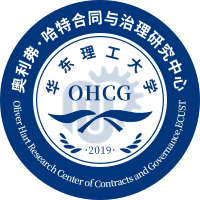Author:哈特中心 Date:2025-05-20
Chaired by ECUST Prof. Wang Jun, the opening ceremony highlighted CCS Vice Chair Fang Xiangchen’s call for a China-centric ESG system aligned with national strategies. The assembly, led by ECUST Prof. Bai Zhishan, elected ECUST Acad. Wang Hualin as Chair, with VP-level and academic leaders (Sichuan Univ, Fudan Univ, Tsinghua Univ, Sinopec) as Vice-Chairs.
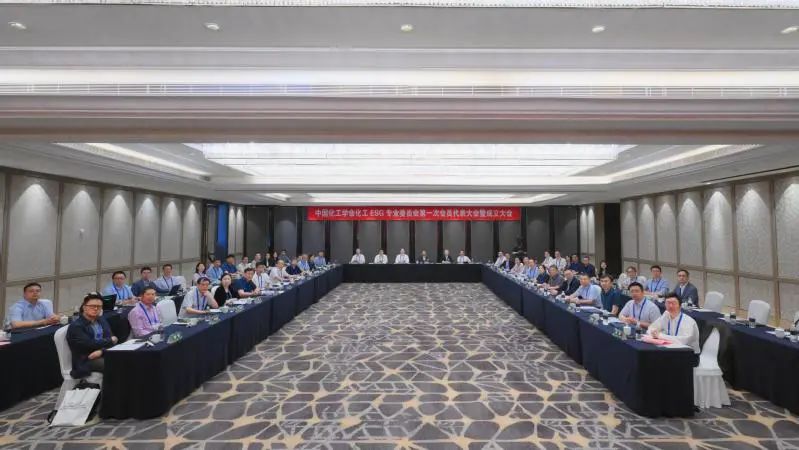
Strategic priorities include: 1)reshaping public perception via ESG advocacy; 2) integrating environmental/social sciences for clean production; 3) advancing carbon-tech R&D and industrial chain synergy. A CCS Party WG, announced by Dir. Peng Shuhui, will oversee governance. The committee aims to accelerate China’s “dual carbon” goals through cross-sector collaboration (gov-industry-academia-finance) and global ESG leadership, positioning Chinese solutions at the forefront of sustainable chemistry.
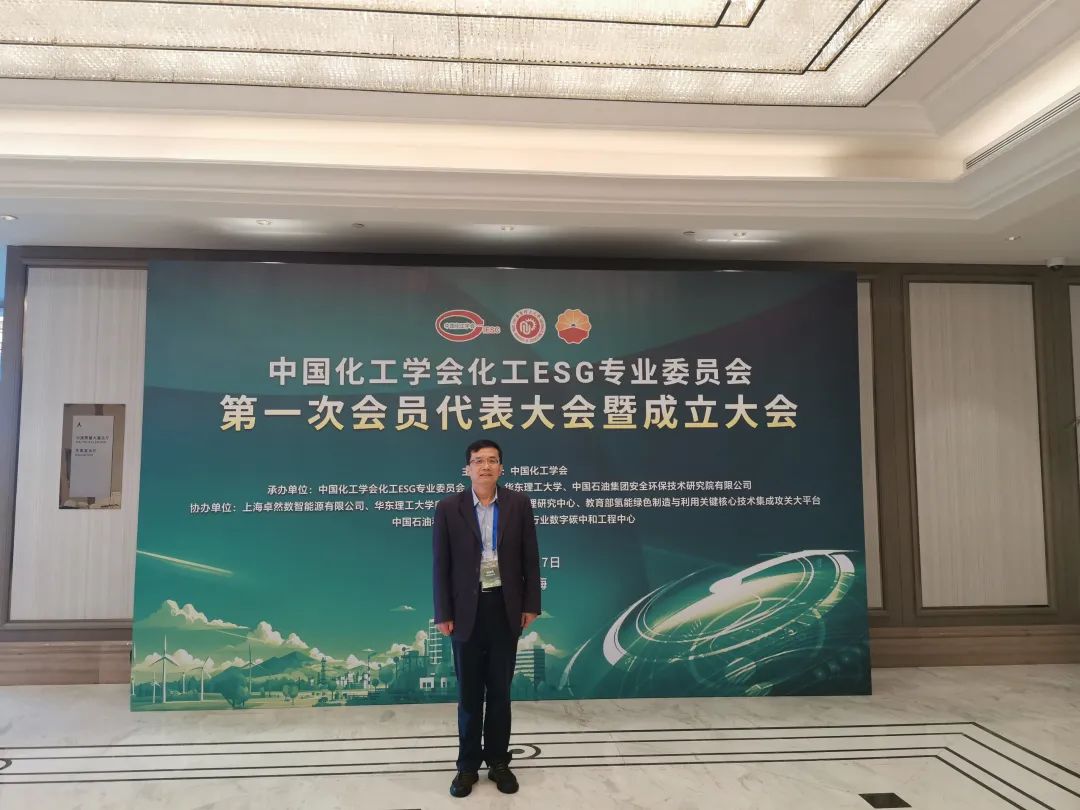
Special Report: Wu Yuming's Analysis of ESG Theory and Practice in the Chemical Industry
In the special report section, Professor Wu Yuming, Executive Director of the Oliver Hart Contract and Governance Research Center at East China University of Science and Technology and founder of Huayan Qingchuang ESG and Sustainable Development Research, gave a systematic exposition on the development process and theoretical evolution of ESG, the current status and problems of rating evaluation, the research and application of ESG indices in the chemical industry, and the practical path of ESG indices in the chemical industry, titled "Evaluation of ESG and Sustainable Development of Listed Companies: Theoretical Methods and Research and Application of ESG Indices in the Huayan Wande Chemical Industry".
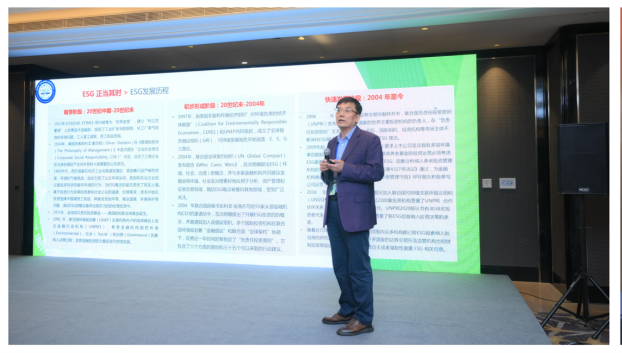
(1) ESG theoretical system and academic context
Professor Wu Yuming first reviewed the development process of ESG, from the embryonic stage in the mid-20th century to the rapid development stage in the 21st century, and sorted out the development process and theoretical framework from ethical investment, responsible investment, and corporate social responsibility to the integration of environmental, social, and governance dimensions. He pointed out that the ESG concept is highly compatible with the traditional Chinese philosophy of "harmony between man and nature" and the new development concept. It is not only a practical tool for global sustainable development, but also a micro implementation path for high-quality economic development in China.
At the academic research level, Professor Wu Yuming introduced the cutting-edge exploration and empirical research cases of the Contract and Governance Research Center at East China University of Science and Technology, a Nobel Prize level international cooperation platform named after Oliver Hart, the 2016 Nobel laureate in economics and Harvard economics professor. The center is based on contract theory, organizational economics, and law and economics, focusing on ESG and corporate governance, resource and environmental governance, and other fields. Through interdisciplinary research, it provides theoretical and methodological support for ESG practice. For example, based on the theory of "incomplete contracts", the center explored the application of stakeholder governance mechanisms in the ESG framework, providing a new perspective for companies to balance environmental responsibility and economic benefits.
(2) Current Status and Challenges of ESG Rating Evaluation
Professor Wu Yuming pointed out that there is a systematic bias in the ESG evaluation of Chinese companies by international rating agencies, which is rooted in the differences in evaluation methods and underlying data, in response to the current problems, differences, and challenges in ESG ratings. For example, the international rating system often overlooks China's unique policy environment and industrial practices, resulting in "environmental performance (E)" evaluations being limited to product perspectives and neglecting production processes, while "social performance (S)" fails to fully reflect the contributions of Chinese enterprises in community development, poverty alleviation, and other areas.
He visually demonstrated the cognitive gap between domestic and international rating systems by comparing the ratings of Chinese companies such as Shenhua and Conch Cement by Wande ESG with those of an international rating agency. At the same time, he emphasized that the development of ESG in China needs to establish localized evaluation standards, which should not only benchmark against international mainstream frameworks, but also combine Chinese regulatory policies and corporate practices, such as incorporating "dual carbon" goals, safety production, etc. into the evaluation system, to enhance the scientificity and applicability of ratings.
(3) Research and application of ESG index in the chemical industry
As a core member of the ESG index research and development team of ECUST Wind in the chemical industry, Professor Wu Yuming provided a detailed introduction to the index's "1531" theoretical framework (unity of man and nature, five development concepts, three economic theories, and integration of knowledge and action), four methodologies (combination of qualitative and quantitative analysis, investigation and case study, field and laboratory analysis, and big data and artificial intelligence), as well as relevant empirical research cases (ESG performance group effect of listed companies based on strategic interaction perspective, enterprise ESG performance and brand value: impact effect and mechanism) and practical application results (ESG index of Huali Wind chemical industry, new energy vehicles, intelligent manufacturing equipment, software and information technology industry).). The ECUST Wind index uses indices such as Wande Chemical Industry as sample space and adopts a dual dimensional model of "management practice rating+dispute event rating". Through historical data backtesting, multi-level weight allocation method, GIS environmental assessment and other modeling techniques, it achieves spatiotemporal evaluation and rating of corporate ESG performance.
He used the environmental pollution incident of a new energy vehicle company as an example to demonstrate the real-time response capability of the dispute event scoring mechanism to corporate risks - during the event fermentation period, the company's dispute event score decreased by 11.1%, effectively warning of ESG risks. In addition, the index identifies the environmental risk exposure points of chemical enterprises through equity penetration and industry chain analysis. For example, a certain power company was warned of high environmental risk due to the deterioration of water quality around its controlling subsidiary, providing decision-making basis for investors and regulatory agencies.
(4) ESG and Green Transformation in the Chemical Industry
Prof. Wu Yuming, leveraging the "Huali Wande Chemical ESG Index Report," highlighted ESG's pivotal role in aligning China's chemical sector with global "dual carbon" goals. Top performers excel in environmental governance (clean energy, carbon reduction), social responsibility (safety, community welfare), and corporate governance (anti-corruption frameworks), while laggards face risks from weak environmental controls. To address 2024 challenges—stricter regulations and green-tech competition—Wu urged the CCS Chemical ESG Committee to enhance cross-sector collaboration (gov-industry-academia-finance), establish ESG databases/industry-specific tools, and expand training to cultivate talent. Leveraging ECUST’s Oliver Hart C&G Research Center, the committee will drive international partnerships to showcase China’s ESG practices, boosting its global influence in sustainable chemistry governance.
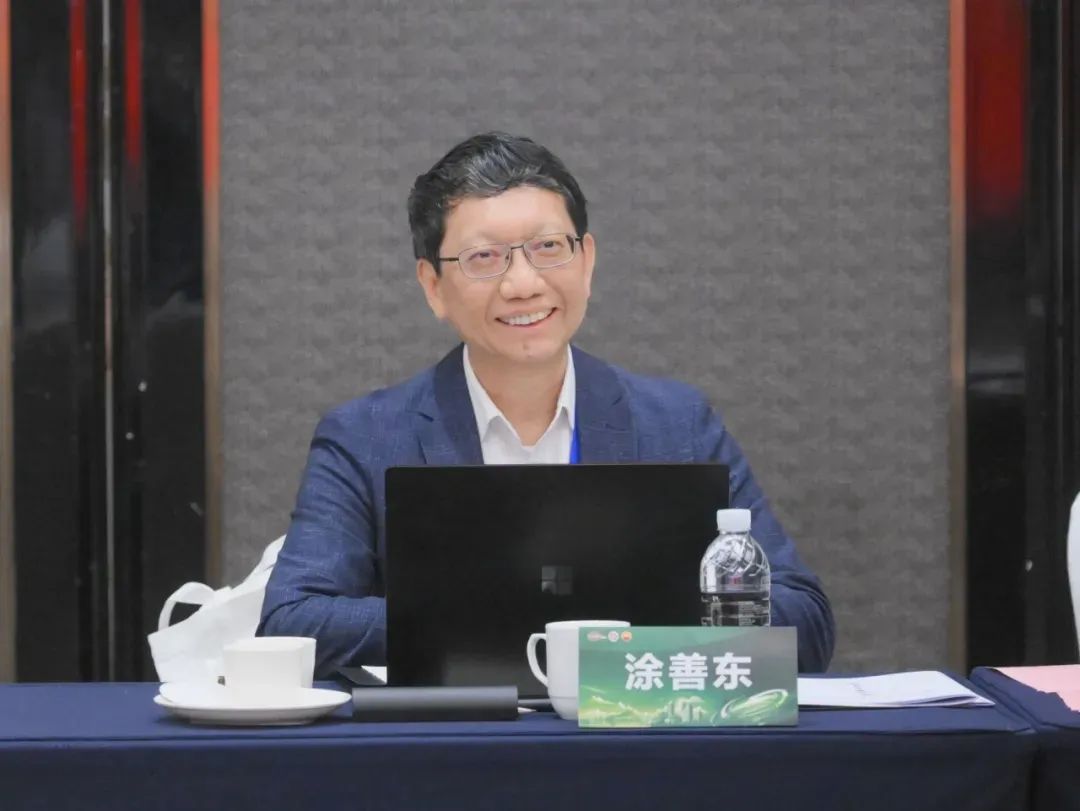
At its second session, Sec.-Gen. Bai Zhishan presented the committee's roadmap, with Chair Wang Hualin spearheading discussions on ESG standards, tech innovation, training, and global collaboration. Hon. Chair Acad. Tu Shandong endorsed the plans and proposed actionable formats for future initiatives. Building on Prof. Wu Yuming’s keynote insights, the committee will leverage ECUST's academic prowess and cross-sector partnerships (government-industry-academia-research-finance) to drive ESG-focused R&D, international exchanges, and green industrial transformation. Guided by China’s “dual carbon” goals, the committee aims to establish a green development paradigm integrating economic, environmental, and social value, offering globally impactful ESG governance models rooted in Chinese innovation and sustainability wisdom.
